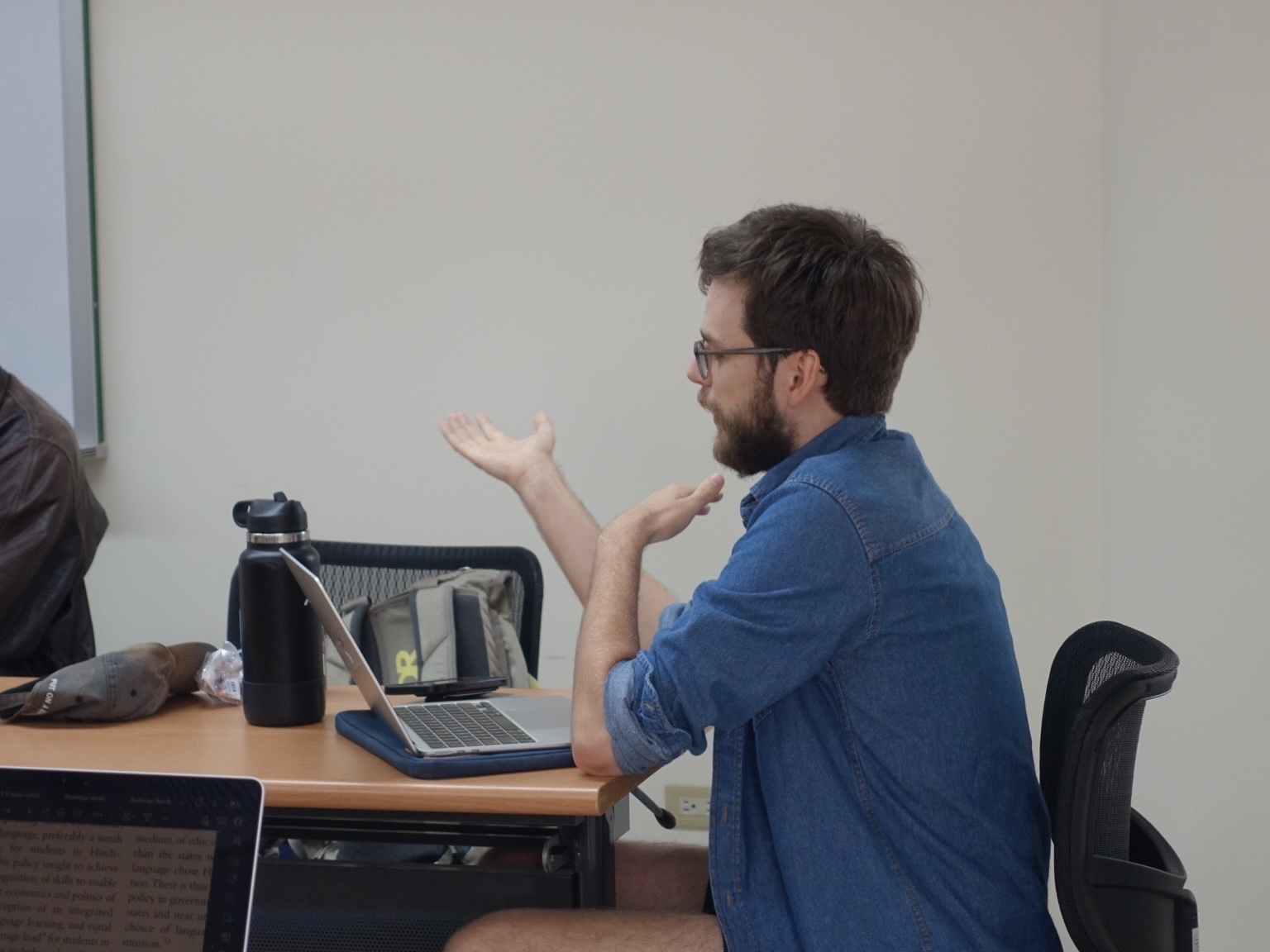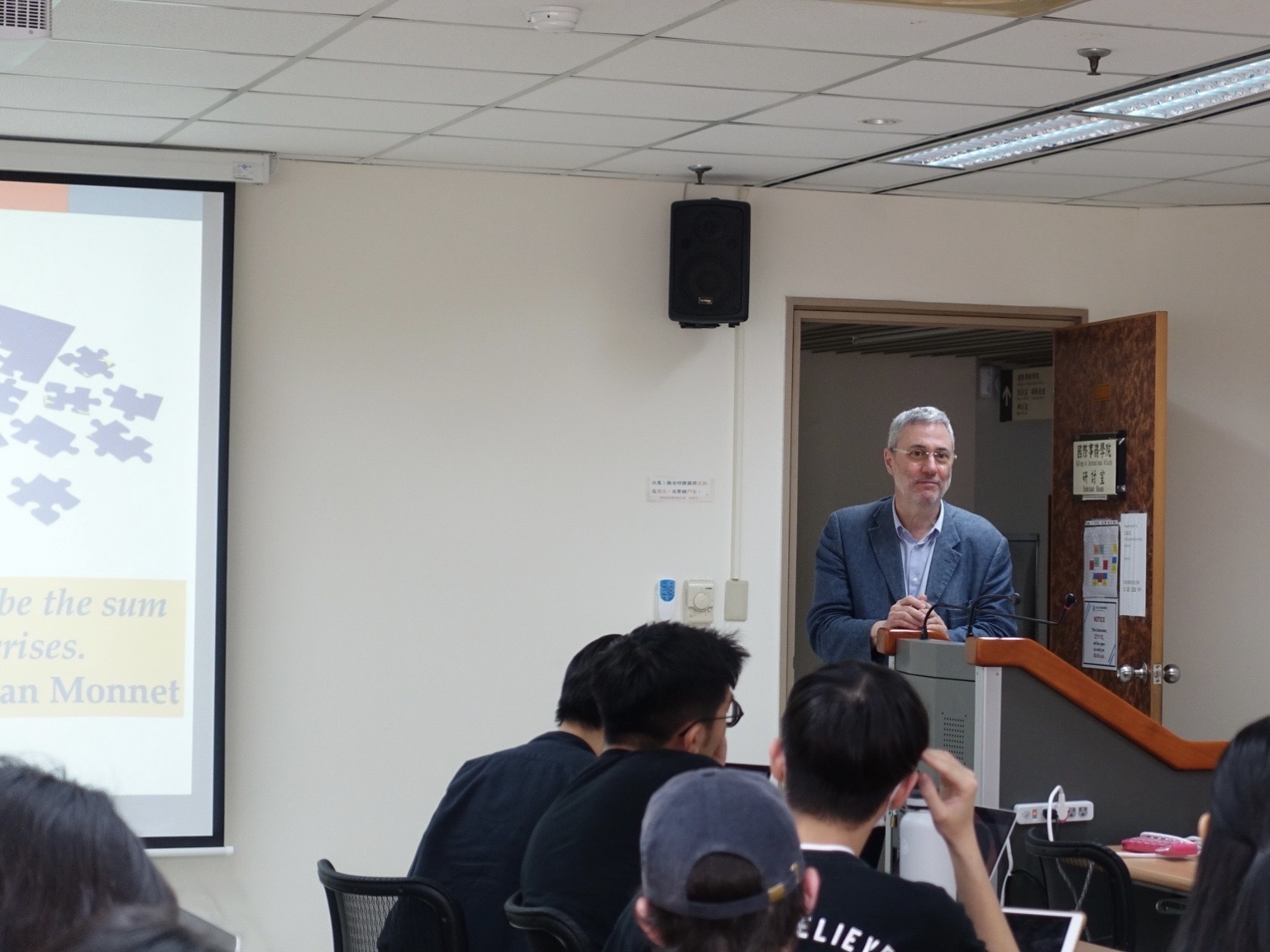News
Europe at the Crossroads. How to deepen integration and avoid marginalization on the global stage?
Last Tuesday (11/04/2023), the Programme in European Union Studies invited Professor Claudio Cressati from University of Udine, Italy, to deliver a speech on the topic of “Europe at the Crossroads. How to deepen integration and avoid marginalization on the global stage?”
Professor started by introducing the different theories of integration and the core characteristics of EU governance. Despite the well-established democratic mechanism in the Union, it has faced significant challenges over the years, including the issue of precarious legitimacy. On the other hand, professor Cressati emphasized that such challenges also spurred further integration in Europe. The Covid Crisis, for instance, highlighted the intergovernmental effort to overcome the limit of the treaties to respond to the challenge.
However, under current EU structure, the lack of power in the EU institutions to intervene in spheres that is kept on a national level remains a big challenge. Politicians’ reluctance to yield power to the European Union level has resulted in a gradual erosion of trust between EU and EU citizens. Professor Cressati came up with two solutions that EU could adopt, “strengthening EU competences” and “reforming institutional structures”.
Professor Cressati proposed some changes aimed at transforming the Commission into a “real” European government. These changes include replacing unanimity with a qualified majority voting system, giving the Union the authority to impose taxes, introducing a bicameral system into the European Parliament, granting the right for European Parliament to submit legislative proposal, as well as strengthening the “Spitzenkandidaten” system to allow more autonomy for the Parliament in the process of appointing the president and other members in the Commission.
Despite the difficulty in institutional reform, Professor Cresatti is confident in the future of the European Union. Throughout its history, EU has proven its resilience by overcoming numerous crises over the years, through modifications and negotiations between the member states and the institutions. It has brought peace for over half a century, and has achieved an unprecedented level of integration between member states. As Jean Monet once said, “Europe will be forged in crisis, and will be the sum of the solutions adopted for those crises.”







